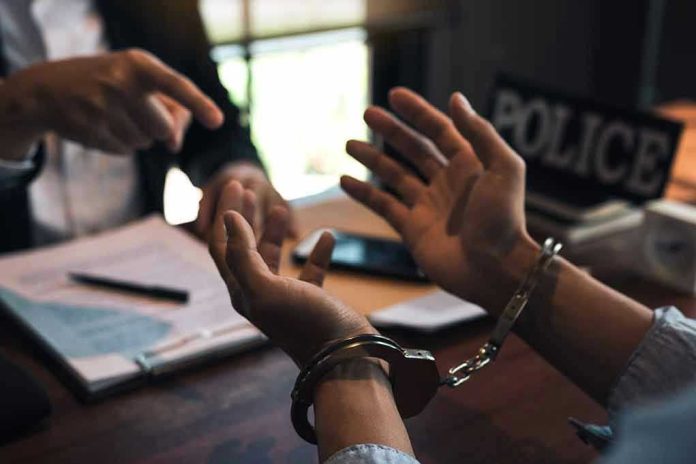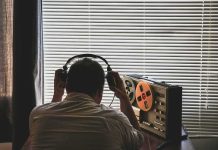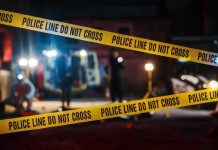
The arrest of 14 individuals in a Mafia-backed betting ring raises alarming questions about the infiltration of organized crime into college sports.
Story Snapshot
- Mafia involvement in illegal college sports betting ring.
- College athletes allegedly operated and participated in the ring.
- NCAA’s ongoing investigation into student-athlete involvement.
- Potential severe eligibility consequences for implicated athletes.
Mafia’s Reach into College Sports
Fourteen individuals, including alleged members of the Lucchese crime family, have been charged with operating a multimillion-dollar illegal sports betting operation. This ring, active between 2022 and 2024, facilitated about $2 million in illegal bets through offshore sites. The operation’s reach extended into college athletics, implicating several student-athletes who were allegedly involved in operating sportsbooks themselves. This scandal underscores the vulnerability of college sports to organized crime and illegal gambling’s pervasive influence.
The NCAA is now investigating these athletes, highlighting the ongoing struggle to maintain the integrity of college sports. The use of offshore platforms allowed the operation to circumvent U.S. laws, illustrating the challenges regulators face in controlling illegal betting activities. The involvement of college athletes not only as targets but as operators within the ring signals a disturbing trend that could have long-lasting implications for collegiate sports.
Historical Context of Sports Betting Scandals
Sports betting scandals have marred college athletics for decades. Notable incidents include the 1950s City College of New York point-shaving scandal and the 1978–79 Boston College scandal involving mobster Henry Hill. These events historically highlight how organized crime exploits the financial vulnerabilities of student-athletes. The 2018 Supreme Court decision to strike down PASPA led to a proliferation of legal sports betting, increasing exposure and temptation for athletes, yet illegal rings persist, often leveraging offshore networks to evade regulation.
Despite the expansion of legal betting, the coexistence of illegal operations reveals persistent gaps in oversight. The NCAA’s rules against betting, particularly on one’s own institution’s games, are strict, with violations resulting in permanent ineligibility. These regulations aim to deter athletes from engaging in such activities, yet the ongoing investigation into the current scandal suggests the need for more robust measures to protect athletes from exploitation.
Key Stakeholders and Their Roles
The primary individuals involved in this case include Joseph “Little Joe” Perna, an alleged Lucchese crime family member, and Spencer Speziale, a certified NBA agent named as a defendant. However, no direct betting activity is attributed to Speziale. The NCAA is actively investigating the involvement of unnamed college athletes, with New Jersey Attorney General Matthew Platkin leading the prosecution. Organized crime seeks financial gains through these illegal operations, while student-athletes may be driven by financial incentives, potentially under coercion.
The NCAA plays a critical role in enforcing eligibility rules to safeguard the integrity of college sports. Law enforcement agencies, meanwhile, are tasked with dismantling these illegal networks. The power dynamics at play reveal how organized crime can wield influence over vulnerable athletes, while the NCAA and law enforcement strive to uphold the rules and prosecute criminal activities. The decisions made by these bodies will have far-reaching consequences for the implicated individuals and the institutions involved.
Implications and Future Outlook
The immediate repercussions of this scandal include potential suspensions and permanent bans for involved athletes, disrupting ongoing sports seasons and damaging institutional reputations. In the long term, there may be increased scrutiny on athlete betting activities and tighter compliance measures from the NCAA and colleges. This case could prompt a broader review of sports betting partnerships and influence future legislation aimed at protecting athletes from similar exploitation.
The broader college sports community faces integrity concerns, while law enforcement and regulatory agencies must allocate resources to tackle such illegal operations. The economic and social impacts underscore the need for continued vigilance against organized crime’s infiltration into sports. As investigations continue, the NCAA’s response will be crucial in setting a precedent for handling similar cases in the future, potentially deterring athletes from participating in illicit betting activities.
Sources:
Seton Hall University Scholarship




